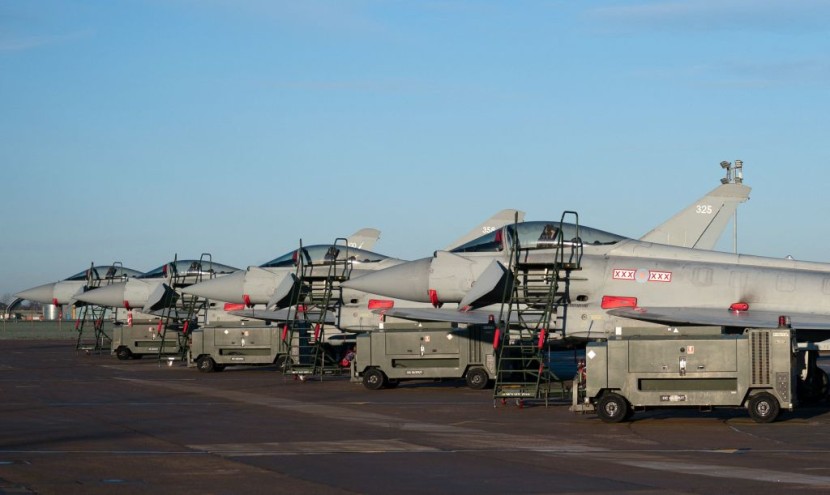Japan, in a proactive response to escalating threats from China, Russia, and North Korea, collaborated with Britain and Italy in signing an agreement on Thursday to create a joint organization dedicated to the development of an advanced jet fighter.
The collaboration, known as the Global Combat Air Programme (GCAP), is part of a broader effort to enhance cooperation in defense and security, as per The Independent.
UK and Japan Forge Alliance for Stealth Warplane

The joint venture, set to produce a stealth warplane equipped with state-of-the-art technology, is a fusion of the European Tempest and Japanese F-X projects, marking a significant stride toward global security. The new aircraft, dubbed "Tempest" in the UK, is slated to replace existing fleets and is expected to be operational in 2035.
The deal, signed a year after the initial agreement to merge their fighter jet development plans, underscores the strategic partnerships the British government is seeking post-Brexit. Notably, for Japan, this venture signifies a departure from the historical reliance on the United States for major military collaborations, partly due to concerns about American reluctance to share technology.
Grant Shapps, the UK Defense Secretary, emphasized the importance of the program in the face of the "most complex security environment since World War II." The collaboration will see the program headquartered in Britain, with the first CEO hailing from Japan, a symbol of the equal partnership among the three nations.
The high-stakes project, with an estimated budget running into hundreds of billions of dollars and a development timeline spanning decades, is expected to benefit from Japanese financial contributions and European expertise honed through projects like the Eurofighter.
The GCAP will encompass cutting-edge features, including unmanned aircraft, advanced sensors, and AI-driven weaponry. BAE Systems Plc and Italy's Leonardo SpA, along with F-X lead contractor Mitsubishi Heavy Industries Ltd, will spearhead the collaborative effort. The involvement of artificial intelligence and machine learning technology aims to maximize the effectiveness of the warplane's arsenal, according to South China Morning Post.
UK-Led Global Defense Project Advances
The signing ceremony in Tokyo marked a pivotal stage in the development of the next-generation fighter plane, according to the UK Ministry of Defence. The treaty is pending ratification by the respective parliaments of the three nations.
The UK has committed £2 billion to the project so far, with plans for the jets to replace the RAF's Eurofighter Typhoon by 2035. It is anticipated that the Tempest will feature a powerful radar system capable of providing 10,000 times more data than current systems. Pilots will leverage virtual reality in the cockpit, displaying vital information directly in front of them.
The headquarters for the GCAP will be based in the UK, showcasing the country's central role in the collaborative effort. The treaty also designates a Japanese chief executive at the program's inception. Additional details about the government headquarters and industry base locations, both in the UK, will be announced in due course.
The collaborative defense initiative aligns with Britain's broader foreign policy shift towards the Indo-Pacific region, recognizing the increasing influence of China. Prime Minister Rishi Sunak's diplomatic efforts, including the 'Hiroshima Accord' with Japan and closer ties with Italy, highlight a strategic response to evolving geopolitical dynamics.
As the treaty awaits parliamentary ratification, the GCAP project stands as a testament to the nation's commitment to collective security and innovation in the face of evolving global threats, Daily Mail reported.
© 2026 HNGN, All rights reserved. Do not reproduce without permission.








